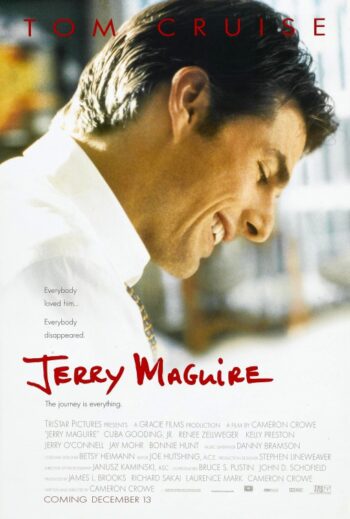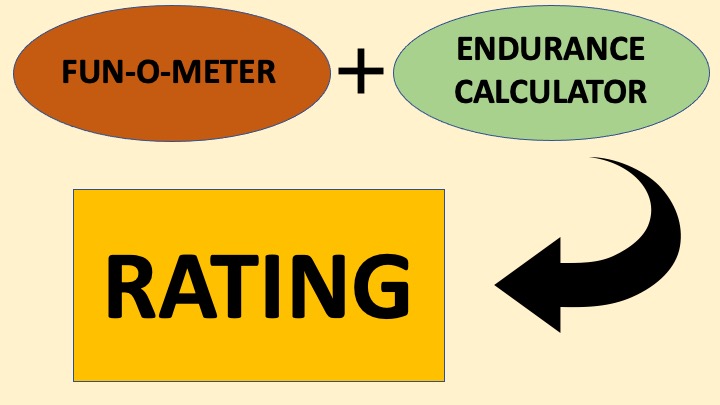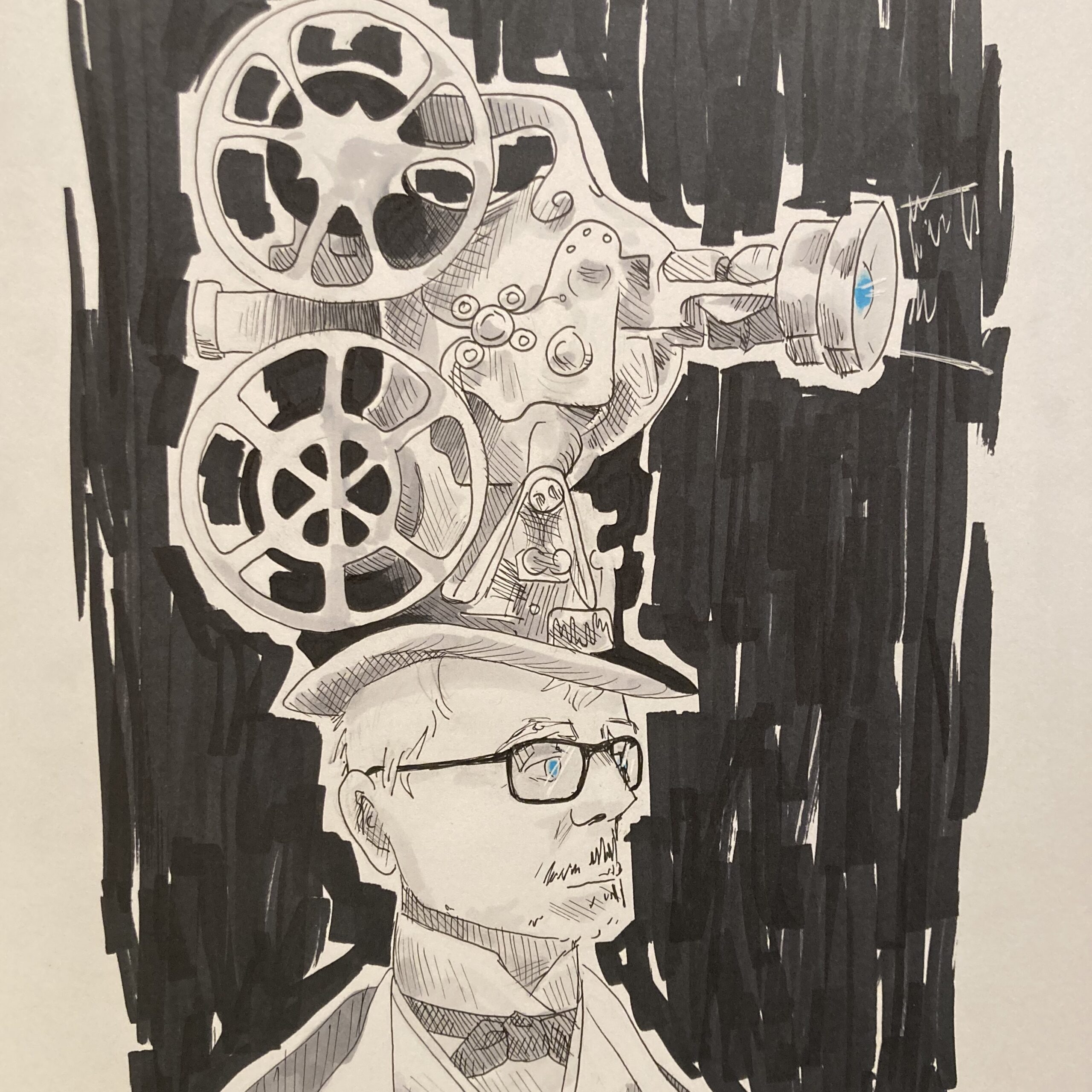“I am out here for you. You don’t know what it’s like to be me out here for you. It is an up-at-dawn, pride-swallowing siege that I will never fully tell you about, okay?”
Tom Cruise has a smile that has launched over a dozen blockbusters. He’s been a world-renowned movie star since the middle 1980s, and he’s the best-known scientologist in history, eclipsing even the recognition of that movement’s founder, L. Ron Hubbard.
Now in his middle 50s, Cruise is known for a strict exercise regimen that has kept him unusually youthful, and he plays a certain type in role after role after role: the successful, handsome, morally questionable dude who can’t quite accept the good fortune of whatever position he’s in.
I really respond to Tom Cruise. This fact has been true since I first heard rumors about Risky Business (Paul Brickman), his breakthrough role from 1983. Since that time he’s been nominated for Academy Awards, and married and divorced three times, but his best performances are among the best of all time[1], while even his tripe[2] satisfies some part of my need for entertainment.
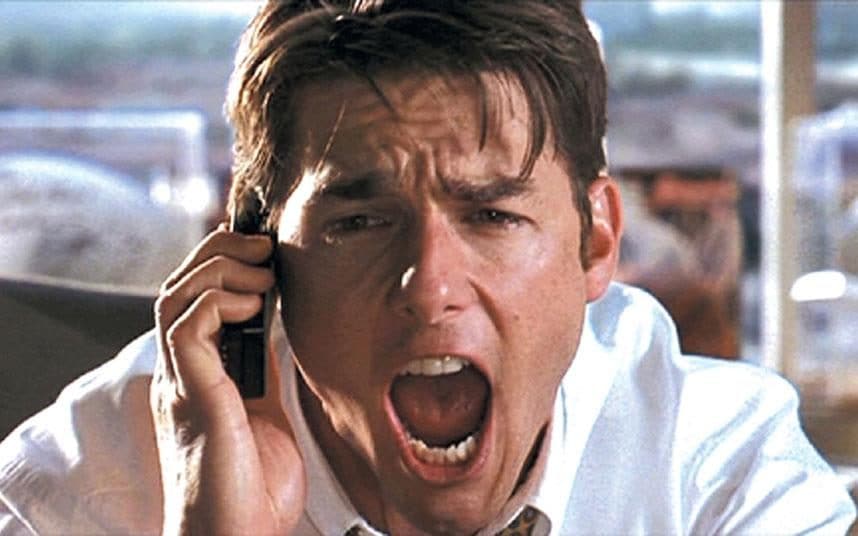
All of which is to say that Jerry Maguire (Cameron Crowe, 1996) isn’t very good. I write that sentence with guarded feelings because I once enjoyed the movie upon its release in the Christmas season of 1996. The fact is, Jerry Maguire is slow and scattered, and its narrative doesn’t make sense, due to certain problems in casting and the screenplay.
For starters, Jerry Maguire is the story of the eponymous hero (Cruise), a 35-year old sports agent who has a crisis of conscience that quickly costs him his job, his fiancé, and all his clients, save one, Rod Tidwell, an under-sized, difficult NFL receiver played by Cuba Gooding, Jr.. This story touchingly describes a man-love relationship that develops from two round characters who both finally succeed by learning from each other and trusting in the shared goal of their friendship.
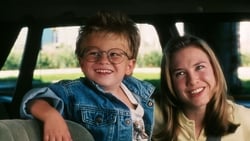
The other main story concerns Jerry’s relationship with the widow Dorothy Boyd, played by Renée Zellweger, a 26-year old single mom and accountant from his former agency who accompanies him into his new world of free agency. She’s got a small son, Ray (Jonathan Lipnicki), a protective older sister, Laurel (Bonnie Hunt), and a smattering of Hollywood-style impoverishment life signals that can’t be believed. As one example, Dorothy lives with Laurel in a nice mid-century craftsman style house, and she employs a male nanny to look after Ray.
Jerry and Dorothy have a pleasant meet-cute, and they are lovely to photograph together. The problem is that their chemistry isn’t believable. They caress and fondle, banter and argue, squint and cry, but even as they say all the necessary things that enable romance (“You complete me”), they never seem to fulfil the promise of either Eros or buddy-hood.
Lipnicki, the boy, is at least adorable.
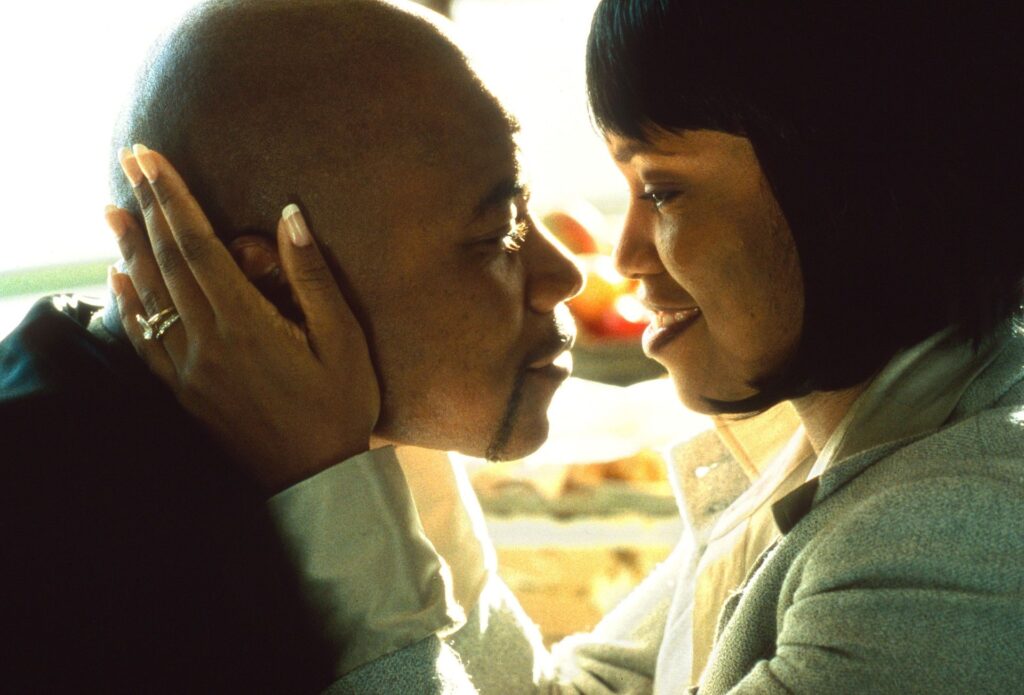
This central casting problem gets amplified by the Tidwells, particularly once we see Rod and his wife, Marcee (Regina King), behave in all the gooey ways we expect couples who are in love to behave. They kiss without respect for public setting; they encourage one another; they share goals and they touch each other, not from choreography on a movie set but from a sense of how actual people get close to the people they live with.
The man-love half of Jerry Maguire works. It has velocity, humor, and valid social commentary on the evils of sports entertainment. The heterosexual romance that’s supposed to represent Jerry’s maturity is bogged down in conveniences that get Cruise from point A, convincing Rod to continue with him (“Show me the money”), to point B, securing Dorothy’s love (“You had me at hello”).
Still, Jerry Maguire earned almost $153 million from domestic box office, unadjusted for inflation, or close to $319 million in 2018. On the other hand, Roland Emmerich’s masterwork Independence Day, also from 1996, earned more than $306 million, unadjusted, which is more than $633 million in 2018, and it’s a toss-up as to which one doesn’t belong on someone’s “greatest of” list.
–October 31, 2018
[1] Born the Fourth of July (Oliver Stone, 1989), Magnolia (Paul Thomas Anderson, 1999), Collateral (Michael Mann, 2004), Tropic Thunder (Ben Stiller, 2008), and Edge of Tomorrow (Doug Liman, 2014).
[2] Cocktail (Roger Donaldson, 1988), Interview with the Vampire (Neil Jordan, 1994), Eyes Wide Shut (Stanley Kubrick, 1999), and The Mummy (Alex Kurtzman, 2017).
